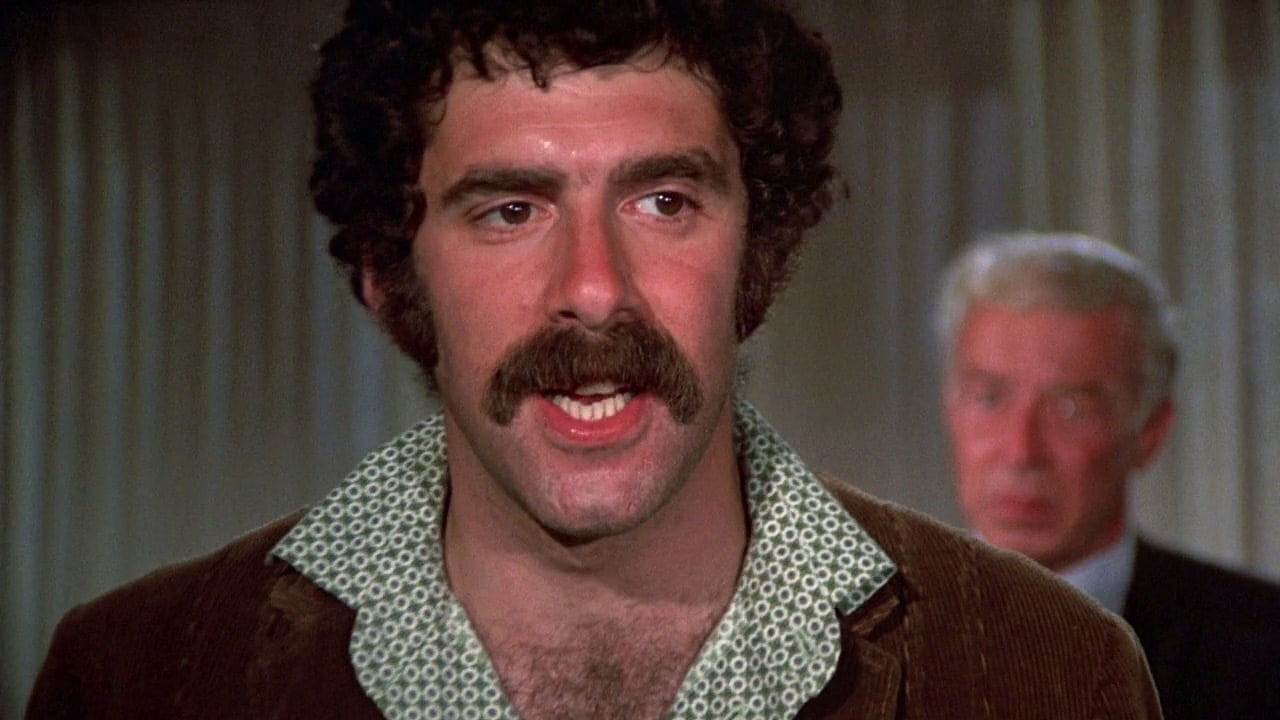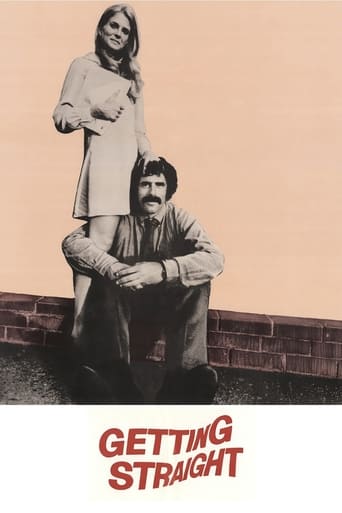

This so-called exploitive campus revolt film from 1970 actually has some wonderful things going on in it. (I can't believe I still have the soundtrack and recently got the video). Elliott Gould was at the peak of whatever powers he had as leading man, without Donald Sutherland to play off (M.A.S.H.) or Dyan Cannon(B&C&T&A - supporting role), and he's perfect as Harry (who I think is in every scene). Candice Bergen was never more beautiful (still learning to act after five years in film - and right before Carnal Knowledge), and throw in Jeannie Berlin, Harrison Ford (not boring for a change), and a host of other young up-and-comers at the time, along with Jeff Corey (James Dean's acting teacher, who played elder Hickock in In Cold Blood, and Wild Bill Hickock in Little Big Man) as Gould's semi-mentor, with campus revolt in a frenetic, casual (until later) sort of way.I know a lot of people worship The Stunt Man directed by the same man, Richard Rush ten years later ( and that film is better than this; but not that great), but he did have his own style (I'm not sure what happened to his sensibilities or career). Throw in Robert F. Lyons as Gould's buddy (does anybody remember that guy?) and there's real possibilities, not politically, but in those areas of film that carry over into thought and heart and hope. This is not even close to being a definitive campus revolt flick from that time, but it has aspects (every other scene almost) that have stature ABOUT real topics with semi-interesting characters along the way, without taking SIDES about Viet Nam or rebellion. If you come across it, you'll find some other actresses and actors that were well on their way (if yo're interested in that) and the ending is strange, but somehow appropriate in an uplifting and yet depressing way. It's worth anyone's time who is, at all, interested in that time period (concerning youth vs. establishment). To make a long story short, it's not some dopey, campus comedy with nudity and platitudes and wise-cracks (except for a few scenes concerning Gould's car and landlady). It's nothing important to convey the ideals, emotions, and contemporary feel of that era, but it hits some spaces and is also funny in a human way that is appropriately not cynical (even for then).
... View MoreToo bad Richard Rush doesn't make more movies. He's got a fantastic style, as can be seen in the more recent "The Stunt Man" and this movie should have retained a "classic" status. Set in the campus riot era, Harry Bailey only seeks to fulfill his dream of becoming a teacher, molding another Salinger and making enough to live on. He can't be bothered with the idealistic ravings of his younger friends and fellow students until he see "it's not what you do that counts, it's what you are". Check out this totally superb performance of Elliot Gould's. Even if you find the movie dated and somewhat silly, Gould is extraordinary. Unfortunately Candy Bergen has about one decent scene, the rest of the time her acting is very trying. The rest of the actors are right on though, especially a very young Harrison Ford.
... View MoreThis movie is somewhat dated in parts. Like a dopey shot using a fish eye lens on a university board member character. The billy clubs used in the riot scenes are very fake looking as well. But Elliot Gould does a good job as a burned out sixties radical who wants to get ultra conservative America off its uptight rear end. Elliot has multiple shots of his INCREDIBLY hairy back in this film though. They shoulda had him wax. Other than that, a good film about late 60's campus life, can ya dig it?
... View MoreConsidering what this film was about I was quite surprised how well the film and its ideology stand up today.There are several reasons why. Firstly, the film doesn't present the student establishment as 100% right and the establishment/teachers as 100% wrong. This is because the film's central character Harry Bailey is presented as belonging somewhere in the middle. On one hand he's dismayed by the establishment's inabilities to understand what the students actually want but on the other hand he's dispirited by the students protesting on frivolous issues as well as a hint of double standards within the movement.A good example of this is the character of Dr. Wilhunt who opposes Harry's move into teaching. While portrayed in the wrong, he's not a one-dimensional monster but someone who is realistic about how much a teacher can change students' morals while teaching english grammar.In fact it's Harry's friend, hippie Nick Philbert, who brings him down when after attempting to avoid the draft, he joins the Marines and turns into a moralistic, gung-ho youth. Only at the end of the film does Harry realise what an unworthy, crazy person he is. It could've been easy for the film to make Dr. Wilhunt as the one who brings Harry down but it avoids the easy path and shows us that there are untrustworthy people everywhere in society whether they be young, old, conservative or radical.Then there is the character of Harry Bailey who's in virtually every scene in the film. Again the film doesn't portray him as some flawless character who fights against the conservative establishment for noble causes. Instead we get someone who's intelligent, compassionate and idealistic but who also has traits of selfishness and foolishness. That he's a realistic, believeable, flawed but likeable person helps the film immesuarably. A lot of this credit must go to Elliott Gould who's excellent in the role.Special note must be of the direction and cinematography which make the film look both stylish and fluid.Particularly impressive is the use of focussing on more then one object or character in the same shot as it's cleverly used to make points about events or people in narrational terms instead of words.All in all a superb film and especially so when compared to another student film of the same era, the inept RPM.
... View More